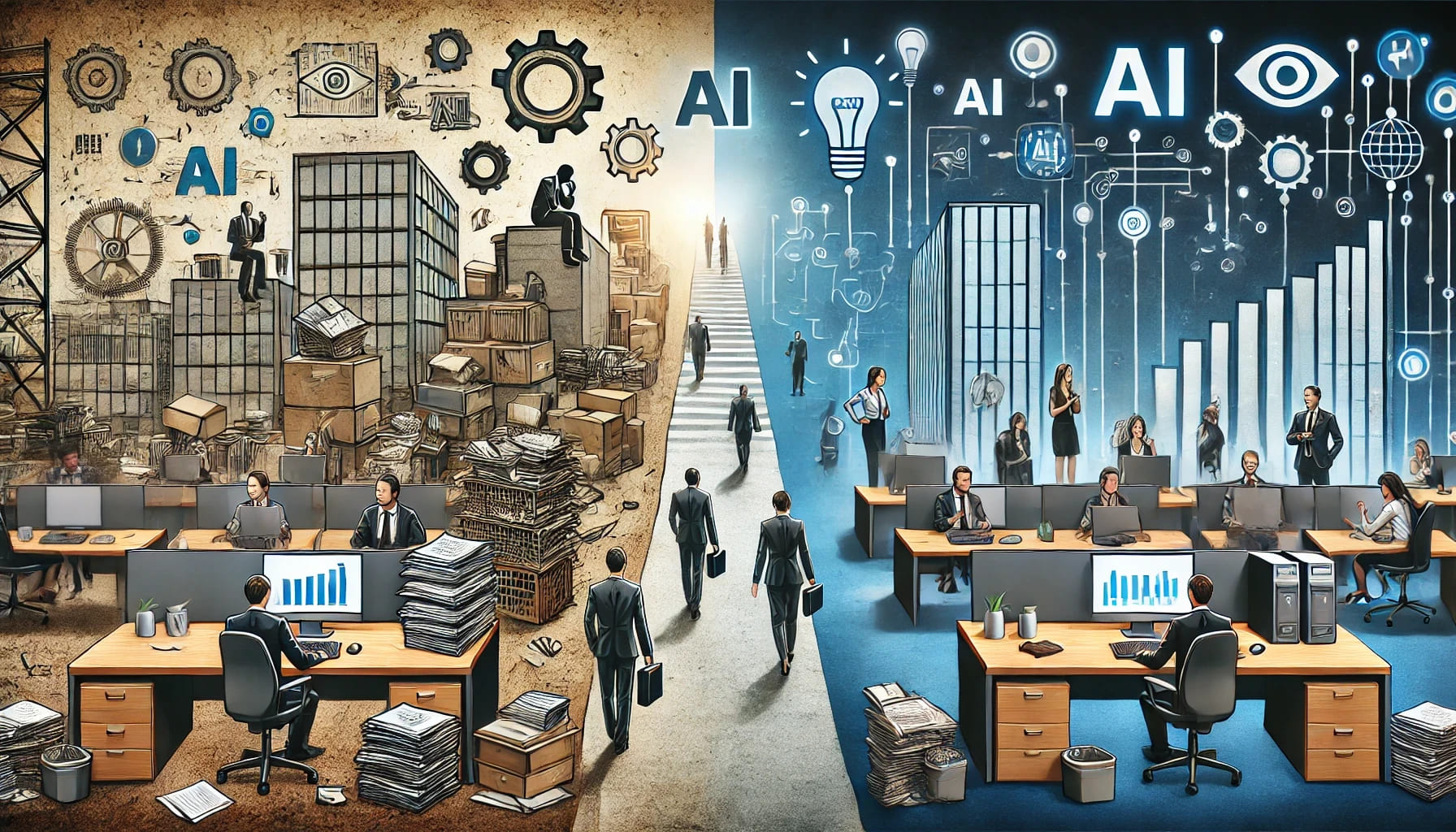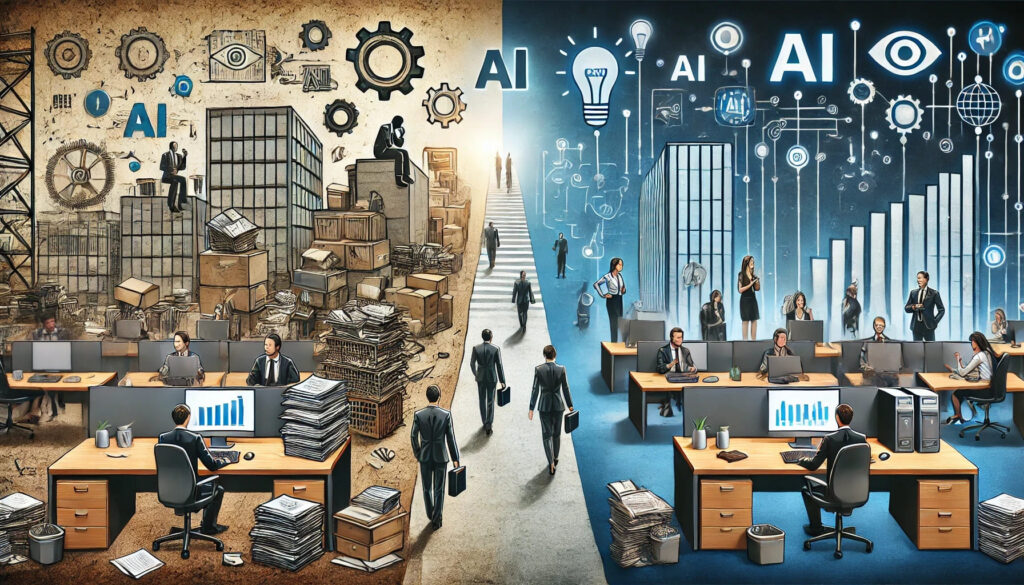
The truth behind low AI adoption in companies and how to overcome it
Discover why AI adoption in companies remains low and learn how to overcome key barriers for success
Currently, artificial intelligence has positioned itself as one of the most powerful tools for business transformation. However, despite its growing relevance and the clear potential of AI to revolutionize operations, many companies, including large corporations, still show low adoption of this technology. At Nucleoo, as a strategic technological partner and AI expert, we have investigated the reasons behind this reluctance. Our goal is to help you understand the challenges and show you how to overcome the barriers preventing your company from fully benefiting from artificial intelligence.

Tabla de contenidos
The reality of AI adoption: an overview
Although AI is revolutionizing various sectors, mass adoption remains surprisingly low. According to a recent study on critical success factors in AI adoption, many companies have started AI projects, but large-scale success has been limited by factors such as the lack of experts, data quality and governance issues, and difficulties in integrating AI with existing systems. The study highlights that companies making progress with AI do better when they align their business strategies with a clear focus on solving specific problems and have strong management support and data structures. However, many organizations have yet to take the decisive step. Why haven’t they joined this revolution?
1 – Lack of understanding and knowledge
One of the most common obstacles is the lack of a clear understanding of what AI really is and how it can be applied within a business environment. AI is often perceived as a complex technology, accessible only to large corporations with huge budgets and technical resources.
This misconception can lead managers to believe that their company is not “ready” for AI, when in fact, there are solutions tailored to the needs and capacities of businesses of all sizes. Education and training in AI are essential to dispel these myths and clarify how it can be effectively integrated into various areas, from customer service to supply chain optimization.
2 – Fear of change and cultural resistance
Change always generates uncertainty, and AI adoption is no exception. Digital transformation requires not only the implementation of new technologies but also a shift in organizational mindset. Resistance to change is common, especially in companies with deeply ingrained corporate cultures.
Employees may fear that AI will replace their jobs, leading to a natural rejection of these technologies. However, it is important to emphasize that AI is designed to complement and enhance human work, not replace it. Clear communication and involving all personnel in the adoption process are key to mitigating these fears and building an organizational culture open to innovation.
3 – Lack of resources and budget
Another determining factor is the perception that AI is expensive and requires significant investment in infrastructure and specialized personnel. While some AI solutions may require an initial investment, there are also many accessible tools and platforms that allow companies to start with smaller-scale pilot projects.
In addition, collaborations with strategic partners like Nucleoo can help companies optimize their investment, implementing customized solutions that fit their needs and available resources. In the long term, investing in AI can lead to significant reductions in operating costs and increased efficiency, which more than justifies the initial expenditure.
4 – Difficulties integrating with existing systems
Many companies have legacy systems that, at first glance, are not compatible with modern technologies, making AI integration seem daunting. The technical complexity of connecting AI with these systems can be a significant barrier, especially if the company does not have a strong IT team.
However, in some cases, even though a complete restructuring may be required, it is worth it to maintain competitiveness in the market. Failing to adapt could mean being left behind. Fortunately, this transformation can be done progressively, using middleware solutions and APIs that enable existing systems to communicate with new technologies.
5 – Lack of a clear AI strategy
Lastly, the lack of a clear and defined AI adoption strategy is one of the most common mistakes we have observed. Many companies recognize the potential value of artificial intelligence but do not have a concrete plan for its implementation. Without a strategy, adoption efforts can be scattered and ineffective.
At Nucleoo, we help companies develop AI strategies aligned with their business objectives, ensuring that every step toward adoption is backed by a well-defined and measurable plan.
The opportunity to transform your company with AI
The low adoption of AI in companies is not due to a lack of interest, but rather to the presence of multiple barriers that may seem insurmountable. However, with the right support, these barriers can be overcome. At Nucleoo, we are committed to helping businesses navigate the complex world of artificial intelligence, providing the tools and knowledge needed to unlock the full potential of this technology.
Don’t let your company fall behind in the digital revolution. Contact us today and discover how AI can transform your business, bringing you one step closer to the future. Adopting artificial intelligence is not just an option; it is a necessity to stay competitive in today’s market. Don’t wait any longer to take the next step!

